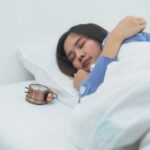For most sleep problems like sleeplessness, treatment can be more effective than sleeping pills–but with no unpleasant side effects or long-term wellness issues.
Why therapy for sleep disorders and not medication?
If you are desperate for sleep, it may be tempting to reach for a sleeping pill or a over-the-counter sleeping aid. But sleep drugs will not fix the issue or deal with the underlying symptoms–actually, it can frequently create sleep problems worse in the long run. That is not to say there is not a moment or a place for sleeping drugs. To prevent tolerance and dependence, however, sleeping pills are best when used responsibly for short term scenarios –for example travel across time zones or recovering from a medical procedure. Even if your sleeping disorder requires using prescription drugs, experts recommend mixing a medication regimen with treatment and healthful lifestyle changes.
Depression may affect every area of a woman’s lifetime –such as your own bodily health, social life, relationships, profession, and awareness of self-worth–and can be complicated by factors like reproductive hormones, societal anxieties, and the distinctive female reaction to private anxiety therapy. But it is important to understand that you are not alone. Women are nearly twice as likely as men to suffer from depression but depression is treatable and there are lots of things you can do to make yourself feel better.
Cognitive-behavioral therapy can enhance your sleep by altering your behaviour before bedtime in addition to altering the method of thinking that keep you from falling asleep. Additionally, it concentrates on enhancing relaxation abilities and changing lifestyle habits that affect your sleeping patterns. Since sleep disorders can be both due to and cause psychological health issues like anxiety, anxiety, and depression, treatment is a good method of treating the underlying problem instead of simply the symptoms, assisting you to develop healthy sleeping patterns for life.
A recent study at Harvard Medical School found that CBT was significantly more effective at treating chronic insomnia compared to prescription sleep drugs. CBT made the best changes in patients’ ability to fall asleep and stay asleep, and also the benefits remained even a year after therapy stopped. If you are dealing with a sleeping disorder, treatment could have the ability to unwind your brain, change your outlook, enhance your daytime habits, and put you up to get a fantastic night’s sleep.
What defines a sleep disorder?
A sleep disorder is a condition that frequently affects your ability to find sufficient excellent sleep, leaving you feeling tired or sleepy through the day. The most common sleep disorders include insomnia, sleep apnea, narcolepsy, restless legs syndrome (RLS), and circadian rhythm sleep disorders frequently triggered by shift work or jet lag.


